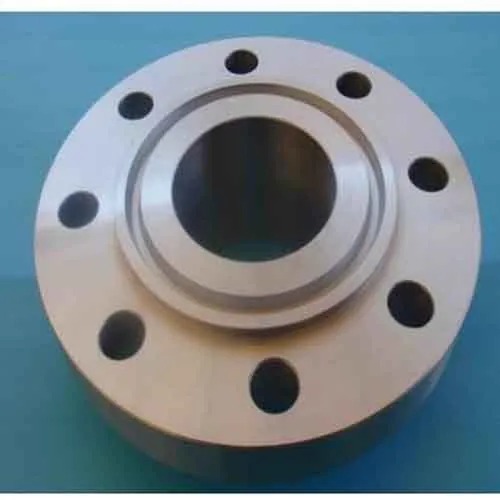When it comes to industrial applications where extreme heat, pressure, and corrosive environments are a concern, having the right materials for connecting pipes and equipment is crucial. Inconel Alloy 601 flanges have emerged as one of the top choices for systems requiring high-temperature stability, excellent oxidation resistance, and robust mechanical properties.
In this blog, we will explore what Inconel Alloy 601 flanges are, their unique properties, the industries they serve, and how to choose the right flange for your specific needs.
What is Inconel Alloy 601?
Inconel Alloy 601 is a high-performance nickel-chromium alloy primarily composed of nickel (about 58%) and chromium (about 23%), with small amounts of iron, aluminum, and other elements. It is known for its exceptional resistance to oxidation, carburization, and other forms of high-temperature corrosion, making it an ideal material for use in high-temperature and high-stress environments.
Inconel 601 is designed to withstand temperatures as high as 2200°F (1200°C) and can maintain its mechanical properties even under extreme heat. This makes it an essential material in industries where heat and corrosion are constant challenges.
Flanges made from Inconel 601 are widely used in a variety of applications where strength, oxidation resistance, and thermal stability are required.
Properties of Inconel Alloy 601 Flanges
High-Temperature Resistance: One of the key characteristics of Inconel 601 is its ability to withstand extreme temperatures without losing strength or becoming brittle. This property is vital in applications like furnace components, exhaust systems, and other high-temperature environments.
Oxidation and Corrosion Resistance: Inconel 601 forms a protective oxide layer on its surface when exposed to oxygen at high temperatures, offering excellent resistance to oxidation and carburization. It also resists corrosion in a variety of aggressive environments, including sulfur compounds, acids, and alkaline solutions.
Superior Strength: Inconel 601 maintains high strength and excellent mechanical properties even in high-temperature applications. This ensures that flanges made from this material can handle substantial pressure and thermal stress without compromising the integrity of the connection.
Resistance to Stress Corrosion Cracking: Inconel 601 is highly resistant to stress corrosion cracking (SCC), which is particularly important in environments where tensile stress is combined with exposure to corrosive elements. This property ensures the reliability of the flanges in harsh environments.
Thermal Fatigue Resistance: The alloy’s ability to withstand rapid temperature fluctuations without failure makes it ideal for applications exposed to thermal cycling, such as heat exchangers and combustion equipment.
Weldability: Inconel 601 flanges can be easily welded, making them suitable for a wide range of fabrication techniques. This property ensures that they can be integrated into existing systems with minimal difficulty.

Applications of Inconel Alloy 601 Flanges
Inconel Alloy 601 flanges are highly sought after in industries where high-temperature performance and corrosion resistance are critical. Below are some of the primary applications:
Aerospace: Inconel 601 flanges are commonly used in aerospace applications, including engine components, combustion chambers, and exhaust systems. Their ability to withstand high temperatures and resist oxidation makes them ideal for critical components in jet engines.
Power Generation: In power plants, particularly those using gas turbines or other high-heat systems, Inconel 601 flanges are used to connect components like heat exchangers, boiler tubes, and other high-temperature systems. Their durability ensures the integrity of piping and valves under thermal stress.
Chemical and Petrochemical Industry: Inconel 601 is used in reactors, pipes, and other equipment exposed to corrosive chemicals at high temperatures. It is particularly effective in systems handling sulfuric acid, hydrochloric acid, and other aggressive substances.
Furnace Equipment: Due to its exceptional resistance to oxidation and carburization, Inconel 601 is commonly used in furnace components, such as trays, tubes, and other high-temperature parts in industries like heat treatment, metal processing, and glass manufacturing.
Oil and Gas: The oil and gas industry often requires materials that can withstand extreme temperatures and resist corrosion from aggressive fluids. Inconel 601 flanges are used in various applications, including heat exchangers, pressure vessels, and pipelines that handle high-pressure, high-temperature fluids.
Marine Applications: Inconel 601 is also used in marine environments for components exposed to seawater and other corrosive agents. Its corrosion resistance and durability in extreme conditions make it an excellent choice for offshore systems, reactors, and heat exchangers.








